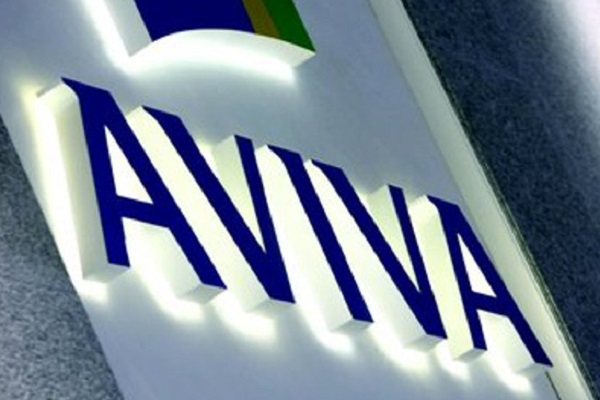ii view: dividend heavyweight Aviva has good Q1 but shares dive
24th May 2023 11:37
by Keith Bowman from interactive investor
A more focused business which is attacking costs and offers one of the FTSE 100's highest dividend yields. Buy, sell, or hold?

First-quarter trading update to 31 March
- Workplace net flows up 25% to £1.8 billion
- Wealth net flows down 15% to £2.3 billion
- Capital cushion or solvency II ratio down 16% from 2022-year end to 196%
Chief executive Amanda Blanc said:
"We have delivered an encouraging start to 2023 and continue to build clear trading momentum. New business volumes are good, despite persistent economic uncertainty, and we delivered another quarter of strong growth across our diversified business.”
"Aviva is uniquely placed to successfully navigate the prevailing economic environment, and we continue to support our customers through this challenging time. We have market leading positions in high growth areas. We are financially strong with an attractive and growing dividend, and we are confident in the prospects for Aviva."
- Learn more: SIPP Portfolio Ideas | How SIPPs Work | Transfer a SIPP
ii round-up:
Insurer Aviva (LSE:AV.) today detailed a broad increase in premiums as consumers upped contributions on higher wages, but suffered reduced flows into its wealth business as markets continued to battle higher interest rates.
Protection and health sales increased 11% year-over-year against a backdrop of NHS strikes, while workplace pension flows climbed 25% to £1.8 billion aided by 134 new schemes and inflation hiked contributions. Wealth net inflows fell 15% compared to the first quarter of 2022 hindered by high market volatility and the potential attraction of higher bank savings rates.
Shares in the FTSE 100 life and general insurer fell by over 5% having come into this latest news down around 4% year-to-date. That’s similar to rivals Legal & General Group (LSE:LGEN) and Sun Life owner Phoenix Group Holdings (LSE:PHNX) and in contrast to a near 4% rise for Asian focused insurer Prudential (LSE:PRU). The FTSE 100 index itself is up by just under 1% in 2023.
Aviva provides savings, retirement pension products and insurance to over 18 million customers across the UK, Ireland and Canada.
General insurance premiums during the quarter increased with UK and Irish premiums up 13% to £1.5 billion and Canadian premiums improving 9% to £0.8 billion. Compared to challenges at rival Direct Line Insurance Group (LSE:DLG), Aviva’s underwriting metric or combined operating ratio (COR) improved to 95.4% from 95.7% a year ago, aided by a disciplined response to inflation and risk selection. The further below 100% the COR is the more profitable the business.
More broadly, Aviva remains on track to deliver on its group wide savings target of £750 million by 2024. Its capital cushion, or solvency II ratio, fell 16% from the end of 2022 to 196% as it paid out £576 million for its final dividend and continued to execute its £300 million share buyback programme.
Broker Morgan Stanley summarised the update as broadly ahead of its forecasts, reiterating its ‘overweight’ stance on Aviva shares.
First-half results are scheduled for the 16 August.
ii view:
With a history dating back more than 300 years, Aviva paid out more than £23 billion in customer claims and benefits in 2022. Group goals now include becoming a simpler, more competitive, and more commercial company. Overseas businesses lacking the relevant scale have been sold, with its focus now on the UK, Ireland and Canada.
- 10 great UK shares that Warren Buffett would pick
- Shares for the future: how I would set up a new portfolio step by step
- Insider: bosses spend over £1.3m on shares in these three huge fallers
For investors, the tough economic and geopolitical backdrop to global markets is injecting caution into flows for its Wealth business. Geographical diversity at Aviva has also reduced over recent years following business sales, while exposure to general insurance leaves it calculating risks in relation to unknown events such as increased flooding under global climate change.
On the upside, Aviva is now a more geographically focused business but one which retains diversity across business type. Costs are being cut, strong capital generation is fuelling shareholder returns, including share buyback programmes when possible, while its robust financial position has again been stressed by management.
On balance, and given a cocktail of increasing efficiency, robust sales, and a forecast dividend yield in the region of 7%, income investors at least are likely to remain long-term fans.
Positives:
- Cutting costs
- Attractive dividend yield (not guaranteed)
Negatives:
- Loss of geographical diversity
- General insurance is subject to events outside of management’s control
The average rating of stock market analysts:
Strong hold
These articles are provided for information purposes only. Occasionally, an opinion about whether to buy or sell a specific investment may be provided by third parties. The content is not intended to be a personal recommendation to buy or sell any financial instrument or product, or to adopt any investment strategy as it is not provided based on an assessment of your investing knowledge and experience, your financial situation or your investment objectives. The value of your investments, and the income derived from them, may go down as well as up. You may not get back all the money that you invest. The investments referred to in this article may not be suitable for all investors, and if in doubt, an investor should seek advice from a qualified investment adviser.
Full performance can be found on the company or index summary page on the interactive investor website. Simply click on the company's or index name highlighted in the article.